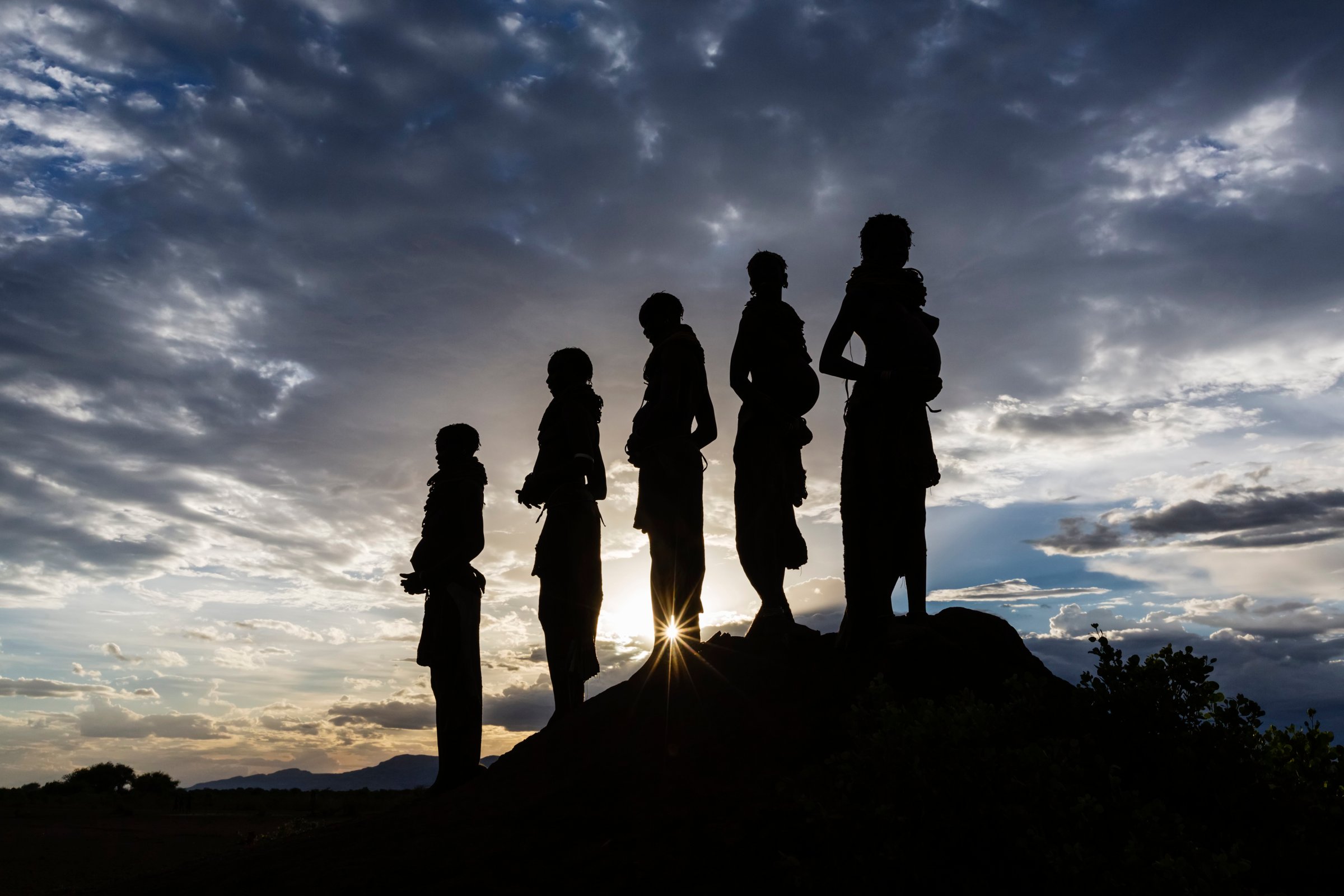
I found myself in a packed labor and delivery ward. When a woman gave birth to an unexpected twin who was not breathing, we had no choice. With virtually no protective gear, two nurses I’d brought with me jumped in and saved the baby.
We had no way to clean up, because this massive, overcrowded hospital in Ethiopia hadn’t had water in six weeks. We left covered with blood. The operating room, as well as the labor and delivery room, were cleaned with a single cup of water from one of the containers that had to be trucked in. We returned to our hotel and used the trickle coming from the shower to clean up, and we felt lucky to have it.
I grew up in remote Ethiopia. My strongest memory comes from when I was in the third grade. My dad had been a missionary and engineer with the Presbyterian Church. In his spare time, he’d work in the rural health clinic. We left in 1973.
I did not return again until 2008, this time with my elderly father and a newly minted medical degree in internal medicine and dermatology. The remote areas I remembered from my youth were still desperately poor with little infrastructure. I was particularly dismayed to see that women’s health remained among the greatest needs. Women continued to give birth at home. When I asked what happened when they encountered trouble, one medical provider turned away, clearly ashamed, as he said, “They die.” It was as simple as that. I felt like things had moved backwards.
That’s when I started the Village Health Partnership. Not to “fix” women’s healthcare, but to create sustainable healthcare systems. We work with Ethiopia’s remotest communities — areas with poor infrastructure and high maternal and child mortality rates — to identify key needs and create healthcare systems that lift up whole communities. I’ve returned to Ethiopia every year since, bringing skilled providers who work side-by-side with Ethiopian providers who desperately want to learn and improve conditions.
On a recent trip, my VHP team visited 13 remote medical facilities to evaluate needs for safe maternal healthcare, prompted by a World Health Organization survey of water, sanitation and hygiene in healthcare facilities in 54 low- and middle-income countries. The findings of that report were truly shocking: almost 40% of those facilities did not have access to safe water; 35% did not have soap and water for hand-washing; and almost 20% did not have basic sanitation.
There is simply no way to safely deliver healthcare without water, sanitation and hygiene. Neither patients nor providers can be protected. In the thirteen facilities we visited in Ethiopia, no matter the problems (and there were plenty), the number one need was always the same: Every healthcare facility, big and small, went through extended periods of a complete and total lack of water.
The new Ber Michael Health Center, located in an isolated community cut off from the world, is an example of the importance of community leadership and engagement. There, I met the village chairman, who was determined to change his community’s isolation. He got the entire community to help dig a rough road, then walked several days to ask a government official to lend them a bulldozer to grade it, so vehicles could pass. Soon, everyone pitched in again, this time to build a healthcare center. They carried rocks, offered donations and built a fence around the hospital to keep it secure.
In two months, 90 babies were delivered at the Ber Michael Health Center on a concrete floor without equipment or protective gear, still an improvement from home births. Water was carried in from the town’s hand-dug well, which is threatening to run dry. I saw community members hand-digging 60 meters deep into the ground, risking their lives if it collapsed, with another 20 meters planned. They were determined.
Dr. Margaret “Migs” Muldrow is the Founder & Board Chair of Village Health Partnerships.
MOTTO hosts provocative voices and influencers from various spheres. We welcome outside contributions. Opinions expressed do not necessarily reflect the views of our editors.
More Must-Reads from TIME
- Donald Trump Is TIME's 2024 Person of the Year
- Why We Chose Trump as Person of the Year
- Is Intermittent Fasting Good or Bad for You?
- The 100 Must-Read Books of 2024
- The 20 Best Christmas TV Episodes
- Column: If Optimism Feels Ridiculous Now, Try Hope
- The Future of Climate Action Is Trade Policy
- Merle Bombardieri Is Helping People Make the Baby Decision
Contact us at letters@time.com